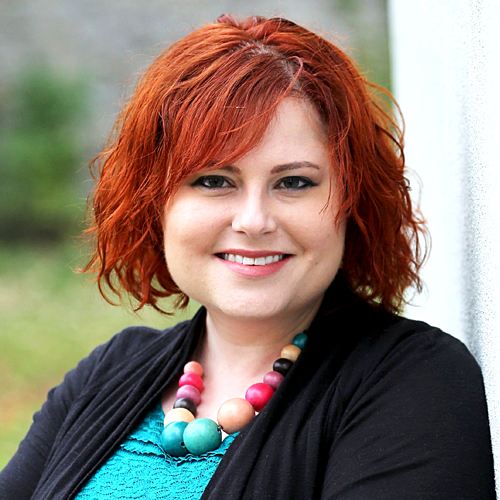 Breastfeeding Complications Online Course(s) & Continuing Education
Breastfeeding Complications Online Course(s) & Continuing Education
Access the latest clinical skills and research for Breastfeeding Complications for Lactation & Breastfeeding professional training. These Breastfeeding Complications online courses provide practice-changing skills and valuable perspectives from leading global experts. This Breastfeeding Complications education has been accredited for a variety of CEUs / CERPs and can be accessed on-demand, at your own pace.
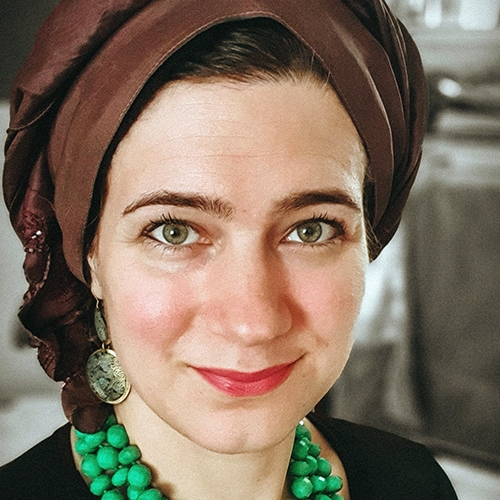
"Help! Breastfeeding Makes Me Feel Bad, Sad or Mad": Helping Breastfeeding Mothers Struggling With Negative Emotions

Zainab Yate is a Biomedical Ethicist, with a specialist interest in infant feeding. Zainab is Vice Chair and named qualitative lead on a paediatric flagged Research Ethics Committee Panel for the Health Research Authority (HRA) in the UK, reviewing research protocols for over a decade. Zainab's previous working background is in Public Health and Commissioning the National Health Service (NHS) in the UK. She had also been a volunteer breastfeeding peer supporter with the NHS for a number of years, is the owner-author of the resource site for mothers and healthcare practitioners on Breastfeeding / Nursing Aversion and Agitation and author of "When Breastfeeding Sucks".
Topic: Breastfeeding / Nursing Aversion and Agitation (BAA) in breastfeeding mothers - [View Abstract]
Topic: Navigating the Future: Bioethical Challenges in Anticipated Integration of AI in Lactation and Breastfeeding Services - [View Abstract]
Topic: Research Ethics & Infant Feeding: How to Utilise the Four 'D's of a Brief Assessment - [View Abstract]
Breastfeeding can trigger particular negative emotions and intrusive thoughts, these can include experiencing the phenomenon of breastfeeding/nursing aversion and agitation, or having the medical condition of Dysphoric Milk Ejection Reflex. Mothers. These don't preclude having postnatal depression or postnatal mood disorders.
Understanding the nuances and variations in all these conditions and symptoms can lead to better referral, intervention and treatment for those struggling with negative emotions associated with breastfeeding. Being prescribed antidepressants when you have D-MER or Aversion will not always alleviate the symptoms or help the situation.
We cover the literature about when breastfeeding can make someone feel bad, sad or mad, and what we know can help alleviate these negative emotions so as a lactation specialist or health care professional you will become well adept at assessing, referring, signposting, supporting and treating those who struggle. The information and skills you will gain will particularly help in complex cases or cases where there seems to be a missing link.
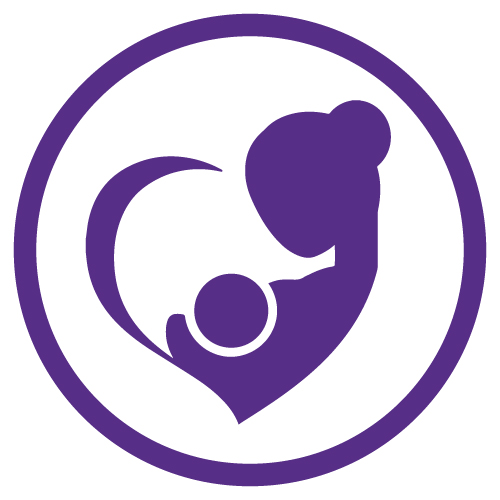
View Details / Enroll
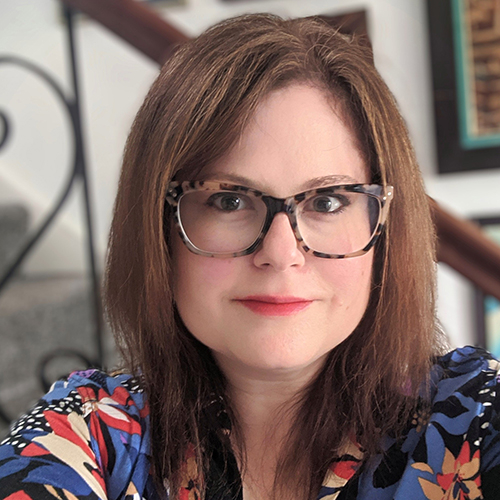

Tamara Drenttel Brand holds an MA in Near Eastern Studies from the University of Arizona and a Master’s in Public Health (MPH) from the American University of Beirut. She spent 10 years in the Middle East, where she worked as a public health practitioner, infant and maternal health consultant and an IBCLC. She has supported breastfeeding dyads from all over the world both in private practice and as a volunteer. In 2011, she founded and still actively facilitates “Mama 2 Mama Beirut Breastfeeding Support,” the largest breastfeeding peer support network in the Middle East (currently at 25k+ members). Additionally, she founded Galactablog, a professional group for lactation specialists and those aspiring-to-be (currently at 4.7k+ members) and has authored several articles for La Leche League’s monthly leader publications in both the Middle East and Ireland.
She is currently an international speaker on the topics dealing with breastfeeding in the Middle East, innovative lactation teaching strategies, working in resource-scarce settings, providing culturally sensitive lactation support, developing and implementing peer counselor training programs, mast cell disease and other related topics. Due to her own chronic health conditions, she has a special interest in educating others about mast cell disease and supporting those with chronic illnesses. She currently resides in a seaside village in Ireland with her family.
Topic: Contextualizing Breastfeeding in Lebanon - [View Abstract]
Topic: Lactation Education Outside the Box: Innovative Teaching Strategies to Engage Your Audience - [View Abstract]
Topic: Mast Cell Diseases and Lactation Care in the Post-Covid Era - [View Abstract]
Topic: Providing Culturally Sensitive Support for Breastfeeding Muslim Families - [View Abstract]
Topic: Reflections on a Breastfeeding Peer Counselor Program in Lebanon: Lessons Learned and Looking Forward - [View Abstract]
Mast Cell diseases are rare but still underdiagnosed. Even among specialists, there is a lack of consensus on terminology, diagnostic techniques and even diagnostic criteria. Clinically, mast cell diseases manifest in divergent ways. Triggers, symptoms, management and treatments differ widely from patient to patient. To date, there is no cure, just palliative management of this chronic, sometimes life-threatening condition. Because of this, there is a poor understanding of Mast Cell-related issues in the broader medical community, particularly in the realms of pregnancy, birth and lactation.
This webinar will provide participants with a general overview and understanding of the various types of Mast Cell Diseases including Mast Cell Activation Syndrome (MCAS), Mast Cell Activation Disease (MCAD) and Mastocytosis. Participants will learn how to put this knowledge into practice to provide their Mast Cell clients with specialized, empathetic, and supportive care. It will discuss how to provide patient-centered care, the importance of coordinated care and the crucial role lactation specialists play within their client’s multidisciplinary health care team. It will examine Mast Cell treatments that are compatible with lactation.
Additionally, light will shed on approaches lactation specialists can utilize to empower their clients with the tools needed to establish and maintain the breastfeeding relationship desired, including helping clients manage their parenting and breastfeeding expectations given the limitations imposed by their disease.

Assisted Nursing: Supporting Breastfeeding Infants With Craniofacial Anomalies

Indira has been involved in birth and breastfeeding support for the past 15 years. As a clinician IBCLC, she leads the Specialist Breastfeeding Clinic which is part of the Merton Health Visiting team (Central London Community Healthcare NHS Trust). This Clinic is for complex breastfeeding dyads and by GP/HV/RM referral only. Indira has been awarded the National Institute for Health Research Fellowship (2021-2022) as part of the ARC NWL Improvement Leadership programme. Her project examines how to offer more skilled breastfeeding and lactation care in the NHS nationally. As an Educator and the lead Lecturer of the Breastfeeding London Course, she has been training future IBCLCs for the past 10 years. Indira's roles as Clinician and Educator have led her to the path of research. As the Director of the Centre for Breastfeeding Education and Research, she has published several articles in leading international peer-reviewed breastfeeding and human lactation journals. She has also served La Leche League Great Britain for the past 13 consecutive years.
Craniofacial anomalies (CFA) are a common anatomical malformation that affects the craniofacial region; they present either as cleft lip (CL), cleft palate (CP), or cleft lip and palate (CL/P) with varying degrees of severity. The incidence depends on the population’s ethnicity and geography. Infants with CFA can experience feeding difficulties either at the breast or at the bottle because they can have issues with their suck, swallow, breathe sequence and milk transfer.
This presentation will provide an overview of the anatomy of CFA. Techniques on how best to support families with CFA infants who wish either to breastfeed, maintain lactation or transition towards breastfeeding post-surgery will be discussed. Health care professionals involved in the care sometimes lack the expertise of supporting breastfeeding and often only recommend maternal pumping and specialised bottles. There is limited research about feeding infants with CL/P directly at the breast.
A clinical case will be presented to illustrate clinical techniques and sequence of care.

View Details / Enroll
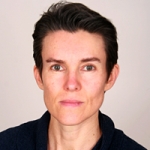
Back to Basics for Cleft Lip and Palate: An Overview of Strategies to Support Lactation in the Neonatal Period and Beyond

Alice Farrow is an IBCLC, writer, speaker, and infant feeding and health equity advocate. Parent of a child born with a cleft lip and palate, Alice has worked extensively, since 2006, with parents, parent organisations, cleft teams health providers and lactation specialists in order to increase awareness of the specific challenges faced by cleft affected infants and their families and to imprve access to adequate lactation support for this community.
Currently based in Rome, Italy, Alice advocates for, and teaches regularly on, the topic of breastfeeding/chestfeeding with an oral cleft via presentations, courses, articles, booklets and handouts and supports parents and professionals wordwide via their Cleft Lip and Palate Breastfeeding website and associated online support group, and in person and distance consultations.
A common misconception among care providers and families is that babies born with an oral cleft cannot breastfeed/chestfeed. This presentation corrects that misconception by exploring cleft types and their expected breastfeeding/chestfeeding outcomes and sharing tools that lactation specialists can use to more effectively support parents when their baby is born with a cleft lip/palate. In particular, during the neonatal period, the lactation specialist is uniquely positioned to support parents to make informed decisions about their feeding choices and create a going home care plan to help them achieve their breastfeeding/chestfeeding goals in the long term.

View Details / Enroll

View Details / Enroll

Beyond the Letdown: Dysphoric Milk Ejection Reflex and the Breastfeeding Mother

Alia Macrina Heise has worked in the field of lactation since 2004. She is considered the international authority on the topic of dysphoric milk ejection reflex (D-MER). She has been the forerunner in identifying, naming and investigating the anomaly of dysphoria with milk ejection reflex since 2007. She has spoken on the subject at many notable conferences, including GOLD, has given several interviews on the subject for both print and podcasts and has been published through her work on a case study about D-MER for The International Breastfeeding Journal. In 2017 she released the first book on the subject. Alia's passion and enthusiasm for the topic of D-MER are evident in the energy that she demonstrates in her presentations and the novelty of new information on a subject that is not yet well known or understood by many makes for an engaging and interesting presentation. Alia is not only a former sufferer of the lactation anomaly herself, she is also the webmaster of d-mer.org and she works closely with mothers around the world who are suffering with the condition in order to support them and to better understand the variance of the experience. She is also in frequent contact with other professionals in order to spread awareness and to support further research and investigation into the subject. Outside of her work with D-MER, she is also in private practice as an IBCLC in the Finger Lakes region of New York. She lives in a small rural town where she enjoys country living with her three children.
Dysphoric milk ejection reflex (D-MER), is not a new phenomenon. In the past, it was almost like Voldemort, the Problem That Must Not Be Named. But for over 10 years now, it has had a name and been brought into daylight. Though still not widely known or understood by many, the hypothesis of the mechanism and possible sustainable solutions are becoming better documented all the time. D-MER has been the subject of two case studies, one case series, and a qualitative research study. Two other studies as also in process at this time.
Mothers with D-MER feel, as a reflexive response with every single milk release, a wave of negative emotions ranging (depending on severity) from homesickness to hopelessness and despair, perhaps even anger and suicidal ideation. These emotions dissipate shortly after milk release and reoccur with the start of every MER, whether with breastfeeding, expressing or with spontaneous releases. Many sufferers keep the problem to themselves preferring the weaning of their baby to being incorrectly labeled as depressed or victims of abuse. Upon experiencing D-MER mothers are initially convinced the problem is physiological and not psychological, and they are correct.
As both a lactation consultant and a sufferer of D-MER, I first named and identified D-MER over 10 years ago. Now, through the case studies that have been done, collaboration with other medical and breastfeeding care providers, and the collection of information from the anecdotal reports from over 1,000 mothers, there is now a foundation of understanding of D-MER. Though the evidence base for D-MER is still mainly unestablished at this time, there are many professionals always working to bring evidenced-based information to the study of human lactation. This is exactly what the slow work and understanding of D-MER is about; the process of bringing new information into the light for further research and understanding.
In the PowerPoint presentation that I have to present, I discuss how D-MER presents, its tell-tale manifestation, and its spectrum and intensities. The presentation also explains the currently proposed mechanism of the MER anomaly, how health care providers can identify a mother it D-MER and how to help and support mothers with the condition.

Breaking the Silos: Understanding the Connections Between Labor Interventions and Lactation

Janiya Mitnaul Williams, MA, IBCLC,CLC, is an accomplished lactation consultant, advocate, and trailblazer in the field of perinatal health equity. With over 15 years of experience, Janiya has dedicated her career to supporting nursing families and driving positive change in lactation practices.
Janiya's educational background includes degrees in Speech-Language Pathology and Audiology, as well as Health & Wellness with a concentration in Human Lactation. This diverse knowledge base equips her with a holistic approach to lactation support, recognizing the unique needs of each individual and their family.
In March of 2020, Janiya made history by creating and establishing the groundbreaking Pathway 2 Human Lactation Program at North Carolina Agricultural and Technical State University (NC), becoming the first public Historically Black College and University (HBCU) to offer a lactation program. As the Director of this pioneering program, she has set new standards in lactation education and operates an Outpatient Community-Based Lactation Clinic, providing essential support to nursing families in the local community.
Janiya's visionary leadership extends beyond the university setting. As the Co-Chair of the Perinatal Health Equity Collective for North Carolina since 2022, she leads strategic initiatives to address disparities and promote equitable access to quality perinatal services. Her passion for social justice and commitment to advancing equity in perinatal care have made a profound impact on the field.
Additionally, Janiya serves as the Co-Coordinator for Doula Services at the Women's and Children's Center at Cone Health. In this role, she works tirelessly to ensure birthing individuals and their families receive compassionate care and invaluable resources throughout their journey.
Recognizing the need for representation and cultural inclusivity within the lactation field, Janiya founded the Mahogany Milk Support Group in 2015. This empowering initiative aims to promote, encourage, and normalize nursing for Black and Brown families. Her trailblazing efforts include being the first person of color and Non-Registered Nurse to be hired as a Lactation Consultant within Cone Health's hospital system.
Driven by a passion for diversity, equity, and inclusion in lactation, Janiya strives to promote better health outcomes for Black, Brown, marginalized, and underprivileged families, who often face significant lactation barriers. Her visionary leadership, dedication to lactation equity, and unwavering commitment to empowering nursing families have earned her recognition and respect within the industry. Through her pioneering work and advocacy, Janiya is making a lasting impact on the field of perinatal health equity, creating a more inclusive and supportive environment for all nursing families.
Topic: Breaking the Silos: Understanding the Connections Between Labor Interventions and Lactation - [View Abstract]
Birth and breastfeeding/chestfeeding are intimately woven together although many separate the two. One's labor and birth process however, have a direct impact on how their nursing journey begins. Naturally, most infants can independently progress through the fetal to neonatal transition and produce a baby-led latch within the first hours of life. However, the process of birth is often unpredictable and many birthing families are regularly faced with common or unexpected labor interventions that can adversely affect milk supply and the initiation and receptivity of breastfeeding/chestfeeding for the infant. Some of the most common interventions include: IV fluids, induction of labor, epidurals, and continuous electronic fetal monitoring. These maternity care practices come with unintended consequences that directly impact lactation. Furthermore, studies indicate that many of these interventions are done more for convenience as opposed to medical reasoning. In order to promote, protect and support breastfeeding/chestfeeding for birthing families, providers and other members of the healthcare team should be encouraged to work in tandem; using effective communication and facilitating open dialogue. By including families in every aspect of their birth and postpartum period, self-efficacy and confidence is increased and trust is developed, setting the foundation for increased initiation and duration of human milk feeding.
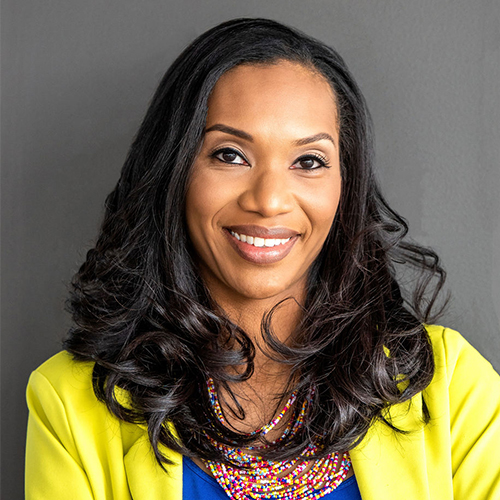
View Details / Enroll

Breast Cancer During Breastfeeding and Breastfeeding After Breast Cancer

Fedro Peccatori is a medical and gynecologic oncologist whose clinical activities mainly include diagnosis and treatment of breast cancer, gynecological malignancies and tumors of young adults. He is Director of the Fertility and Procreation Unit within the Division of Gynecologic Oncology at the European Institute of Oncology, Milan, Italy.
His research projects deal with fertility preservation and counselling in young oncological patients, pregnancy associated cancers, pharmacological protection of ovarian function during chemotherapy, molecular characterization breast and gynecological malignancies.
He’s part of the ESMO task force Adolescent and Young Adult and ESMO faculty member for breast cancer. At present, he acts as Scientific Director at the European School of Oncology (ESO), where he’s in charge of organizing and supervising international courses and masterclasses on different oncological issues.
He has been interested in breastfeeding in cancer patients since 2009 and has published a number of papers on this issue.
Breast cancer is the most frequent malignant tumor during reproductive age.
Around 1/10000 nursing mothers are diagnosed with breast cancer every year. In this rare and difficult situation, patients and healthcare providers should be knowledgeable about the prognostic and practical implications of such an event. Chemotherapy may pass into the milk and breastfeeding is usually contraindicated during chemotherapy. Weaning should be gradual, to avoid breast inflammation and mastitis. A thorough psychological support should be given to the nursing mother to help her into the oncological trajectory.
On the other hand, the number of young breast cancer survivors is increasing and more and more patients enquire about the possibility of subsequent pregnancies and breastfeeding. The breast treated with conservative surgery and subsequent radiation is less responsive to hormonal stimulation, with reduced glandular hyperplasia and hypertrophy. Milk production is usually decreased in the previously affected breast and surgery may affect duct integrity. Nonetheless, each breast has the capability to self regulate milk production according to the baby’s suckling habits, and many evidences support the notion that one breast is enough. Specific education programs should focus on adequate baby positioning, correct latching and reinforcement of the advantages of on demand breastfeeding. Data from our group demonstrate the feasibility of breastfeeding after breast cancer, but qualified lactation counseling to support patients and caregivers is needed.

View Details / Enroll

Breastfeeding / Nursing Aversion and Agitation (BAA) in breastfeeding mothers

Zainab Yate is a Biomedical Ethicist, with a specialist interest in infant feeding. Zainab is Vice Chair and named qualitative lead on a paediatric flagged Research Ethics Committee Panel for the Health Research Authority (HRA) in the UK, reviewing research protocols for over a decade. Zainab's previous working background is in Public Health and Commissioning the National Health Service (NHS) in the UK. She had also been a volunteer breastfeeding peer supporter with the NHS for a number of years, is the owner-author of the resource site for mothers and healthcare practitioners on Breastfeeding / Nursing Aversion and Agitation and author of "When Breastfeeding Sucks".
Topic: Breastfeeding / Nursing Aversion and Agitation (BAA) in breastfeeding mothers - [View Abstract]
Topic: Navigating the Future: Bioethical Challenges in Anticipated Integration of AI in Lactation and Breastfeeding Services - [View Abstract]
Topic: Research Ethics & Infant Feeding: How to Utilise the Four 'D's of a Brief Assessment - [View Abstract]
Aversion to breastfeeding or agitation while breastfeeding is known to occur in some women who breastfeed while pregnant, or who tandem feed a newborn and a toddler. However, it is a little researched area, and the paucity of published literature around breastfeeding aversion and agitation reveals a significant gap in the literature. My presentation presents the findings of an exploratory online survey that sheds light on what appears to be a commonly experienced phenomenon of aversion and agitation whilst breastfeeding, which varies in form, severity and duration. BAA is characterised by feelings of anger or rage, a skin crawling sensation and an urge to remove the suckling infant, but can also be feelings of agitation and irritability whilst the infant is latched. Mothers who experience BAA still continue to breastfeed, but have feelings of guilt and shame about BAA and are often confused about having feelings of BAA. Research is needed to understand the reasons for BAA, its causes, triggers and strategies to minimize the experience in breastfeeding mothers.

View Details / Enroll
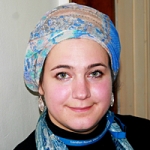
View Details / Enroll
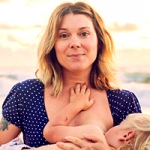

Meg is the mother of three breastfed boys and lives with her husband and children in QLD, Australia. She is an International Board Certified Lactation Consultant (IBCLC) in private practice and works with parents to help them reach their breastfeeding goals. She has a degree in psychology and her prior work was is in counselling and sexual health. She was a La Leche League Leader (breastfeeding counsellor) for seven years before becoming an IBCLC. Meg is the author of two books including, "Boobin' All Day...Boobin' All Night. A Gentle Approach To Sleep For Breastfeeding Families". She has published articles in numerous parenting magazines and websites. She was also filmed for a short documentary, "Lactaboobiephobia", based on one of her blog posts which was released in 2016.
Topic: Breastfeeding With A Tongue Tie. How Can We Help When A Tie Revision Is Not Possible? - [View Abstract]
Topic: Exclusively Breastfeeding Triplets-Case Studies - [View Abstract]
Topic: Social Media Backlash – Addressing Emotionally Charged Responses - [View Abstract]
Topic: What to Do When the Laid-Back Breastfeeding Position Doesn’t Work…Self Attachment, the Flipple Technique and the Koala Hold All With a “Hands Off” Approach - [View Abstract]
Breastfeeding a baby with Down syndrome can bring many challenges to both mother and baby and many women are told they will be unable to breastfeed. This presentation will give examples of women who have faced different challenges breastfeeding their babies with Down Syndrome, yet had successful breastfeeding outcomes with the right support and information. This will include case studies with specific tips and suggestions that will help the lactation professional in offering support to these families. These women have faced many challenges including; prematurity, low muscle tone, breastfeeding into toddlerhood and a toddler who did not start breastfeeding until his mother had another baby when he was 2 ½ years old! This presentation will cover the most common challenges that families face when breastfeeding a baby with this condition and the possible solutions for them.

View Details / Enroll
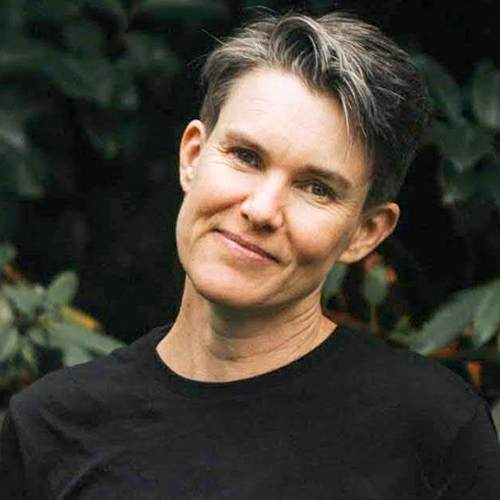
Breastfeeding and Chestfeeding With an Oral Cleft: Scaffolding for Success

Aiden Farrow is an IBCLC, writer, speaker, and infant feeding and health equity advocate. Parent of a child born with a cleft lip and palate, they have advocated extensively over the last 16 years in order to increase awareness of the specific challenges faced by cleft affected infants and their families and to increase adequate lactation support for this community. Based in Victoria BC, Aiden has a private practice entirely focused on babies with oral clefts, providing support internationally via telehealth. Aiden serves on the editorial review board of the Journal of Human Lactation and co-authored the journal’s policy on sex and gender inclusion. Aiden works with Indigenous families as a family support worker and lactation and infant feeding consultant at the Victoria Native Friendship Centre and has a special interest in food security and food sovereignty for infants and toddlers.
When a baby is born with a cleft lip, cleft palate, or cleft lip and palate, how the infant will be fed is an immediate and compelling issue to resolve. Once the baby is feeding competently at the breast or with a bottle, the family may receive little to no feeding support between the early weeks after birth until the recovery period following lip or palate surgery. While full breastfeeding (directly at the breast, without compensations or devices) is theoretically possible once the lip and palate are repaired, some babies have difficulty returning to direct breastfeeding or chestfeeding, and babies who have never been breastfed or chestfed, lack the oral skills to do so. In this presentation, I will discuss what “scaffolding for success” means in the context of breastfeeding and chestfeeding with an oral cleft. I will cover how to counsel parents at each significant stage of the baby’s cleft care timeline, how to support a parent’s unique feeding goals, how to break down a feeding goal into smaller, achievable steps, techniques for supporting at the breast feeding for babies with unrepaired clefts, best practices for achieving a full milk production, mixed feeding, feeding tools, and how to support developmentally appropriate feeding skills before and after cleft repair surgery.
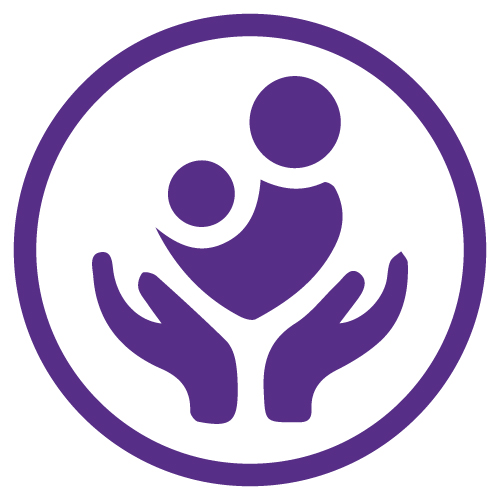
View Details / Enroll




